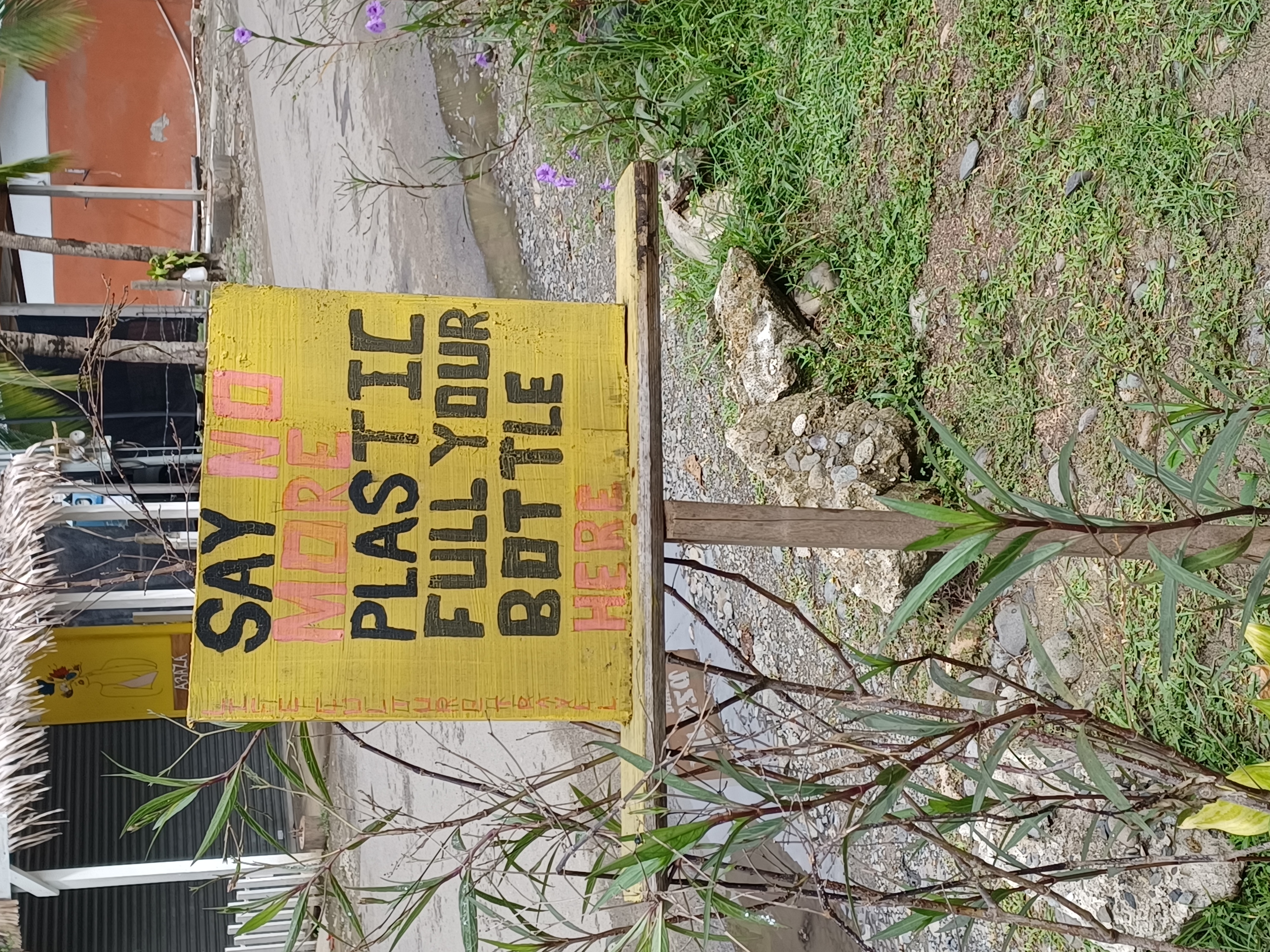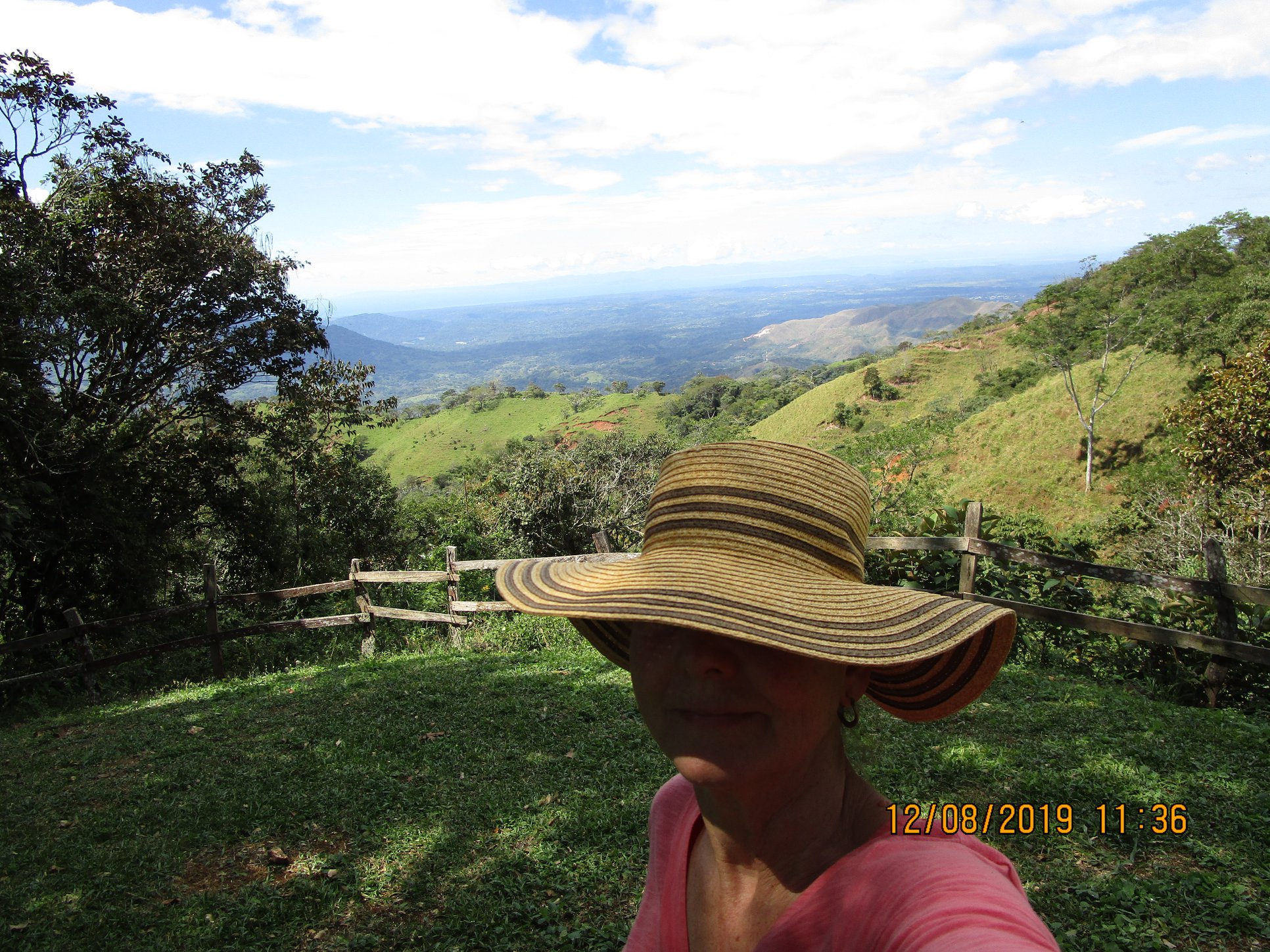In 2017, I published a version of this essay in Elephant Journal. Since then, the term, “Do one thing” has become the mission statement of the climate crisis. Although some of what I wrote may be outdated, the message is more important than ever: It is time to act.
“The journey of a thousand miles begins with the first step.” – from the Chinese, Tao Te Ching
I have decided that I don’t have to wait until Big Brother is watching me to choose to do the right thing, right now. I have developed a pretty good habit of always bringing my own recyclable bags when I go shopping. Now, if I happen to be out without a bag, I just carry the items in my arms or stuff them into my purse (along with the receipt, in case I’m accused of shoplifting).
On a trip to Walgreens recently, the cashier began to deposit my purchased items into a Walgreens plastic bag before I had had a chance to take them. “No, that’s okay – I brought my own bag,” I told her. “You know, other states have banned single-use plastic bags. I wish Kentucky would do this, too.”
Her reply shocked me, to say the least. “It’s no use. No matter what we do, we’re doomed. So I don’t even bother recycling, or doing anything, for that matter.”
“But if we try, at least we’re doing something,” I reasoned. “At least this gives us a sense of hope: Think STARFISH. You know, that story about the child tossing starfish back into the ocean?”
But she just repeated her opinion. “I have been reading about the problem, and nothing we do is going to change anything.” So the best thing to do is to give up? That’s a lot of rotting starfish scattered along the shoreline, cluttering up our beach walks. With that kind of logic, scientists would never have bothered finding cures for the diseases that are now officially eradicated.
In 1982, former president, Jimmy Carter founded the Carter Center, a nongovernment organization with a mission: Waging Peace. Fighting Disease. Building Hope. One of the most important achievements in his lifetime, Carter said, was not being president but working to eliminate the Guinea worm disease, a common parasitic malady that was afflicting millions of children in Africa. At this time, Carter’s coalition has reduced the incidence of Guinea worm disease by 99.99 percent, “making it likely to be the first human disease since smallpox to be eradicated.” The most important thing Jimmy Carter did was to take that first step.
Some years back, my daughter told me that she had decided to stop buying bottled water, period (in order to reduce plastic waste as well as to boycott greedy corporations that steal water from public aquifers and sell it back to the public for private profit.) She began this as an experiment and decided to keep going. Now she is finishing her MBA and creating a Sustainable Business Plan.
My daughter’s example gave me the courage to follow. Now, when someone offers me a bottle of water, or when I am out on a walk and get thirsty, I just say no – most of the time, anyway. I tell myself that I am not going to die of thirst. If I’m that thirsty, I can find a restroom and drink water from the sink. Knowing that I am not going to buy bottled water on the run helps me to remember to bring a container with me. And remembering that my daughter is doing the same thing gives me a little more incentive. We’re in this together.
My son just told me that he no longer buys greeting cards, which explains why I didn’t receive a Mother’s Day card from him this year. Need I explain that his decision is based on a desire to reduce paper consumption and waste? “No one is going to save that Hallmark card I send them,” he reasons. Is this one small, conscious act going to solve the crisis of deforestation? Maybe not. But again, Think Starfish: one action does matter.
Now that I have the “no bottled water” habit in place and no longer expect to receive Mother’s Day cards from my children, I want to do something else; or should I say, not do one small thing, one small step at a time. I decided to stop using plastic straws after I heard that straws are especially pernicious to ocean creatures. Every time the server at a restaurant brings me a plastic straw, I recall the image of the sea turtle that was rescued by scientists who had to remove a plastic straw that was “fully embedded” in its nose. Ugh. What would it feel like, to have a straw fully embedded in my own nose, or in the nose of my pet? Plastic straws are forever – they never, ever go away. “No thanks,” I say; and if possible, I tell the server right away not to bring me a straw. I can do without plastic straws, so I will do without them.
The superfluity of plastic straws is obvious. Drinking straws are necessary only under dire circumstances, meant for people who are physically unable to drink from a glass. In fact, plastic straws have already been banned by several nations less exceptional than the exceptional United States. Why can’t we follow? The last time I went out to lunch, when the server handed my friend and I each a straw, we told her we preferred not to use straws. She thanked us. “Good for you,” she said. Think: Starfish.
What’s next? Carry-out containers are my pet peeve. I am so sick of being handed my leftover food in a flimsy plastic, aluminum, or Styrofoam container that I have to figure out how to dispose of when I get home. The official word from my city’s Solid Waste Disposal program is, “Styrofoam is NOT accepted for recycling!” Just because the garbage truck takes away your Styrofoam along with the other items in the orange bin doesn’t mean it is being recycled. Until I know for certain there is a way to recycle Styrofoam, I will avoid using it.
The problem of Styrofoam for leftovers has me wondering: Why all these leftovers to begin with? Why do restaurants serve us more food than we can possibly eat? Throwing so much food away is something else that pricks my conscience.
According to non-profit foundations, chefs, and food waste advocates, tackling the dilemma of food waste is the one next thing, the next one step. “Wasted: The Story of Food Waste,” is a documentary produced expressly for the purpose of raising public awareness about the next big issue. Anthony Bourdain, late, executive producer and the documentary’s eerie narrator, offered statistics: “Forty percent of the food in America gets thrown out. Ninety percent of the food that gets thrown out in America ends up in landfills, which doesn’t decompose properly and releases methane gas. The average family of four will throw out $1,500 worth of food each year.”
I see several good reasons in that statement for thinking about leftover food. Many of us already take our own shopping bags to the grocery store, decline the offer of a plastic straw, and bring our own carry-out containers to public eateries. Are we ready to start repurposing leftovers, too? I hate to think that Anthony Bourdain is no longer with us because he, like that cashier at Walgreens who refused to do anything, had given up hope. Think: Starfish. One small step, one person at a time, is how we change the world.
Carter and his work on Guinea worm disease: https://www.cartercenter.org/about/accomplishments.html
Salon.com. Tuesday, Apr 25, 2017 09:59 PM EST.
Roston, Tom. “It’s fun to get “Wasted!”: This food waste film doesn’t taste like spinach on your plate”
Salon talks to the directors of the new documentary about fighting food waste that features Anthony Bourdain.



